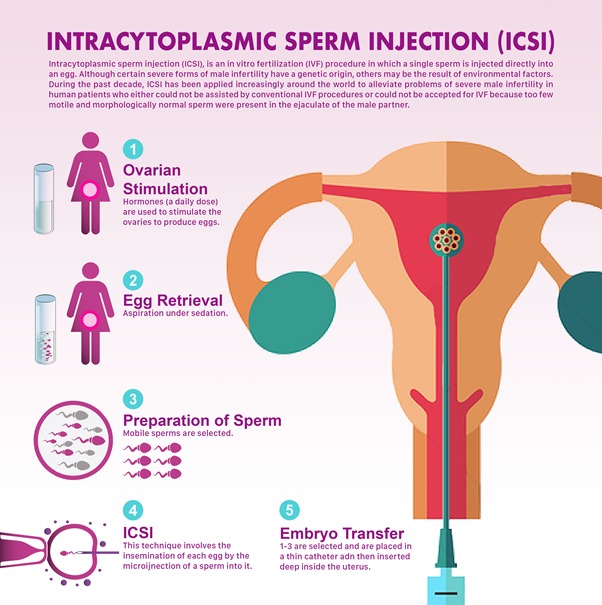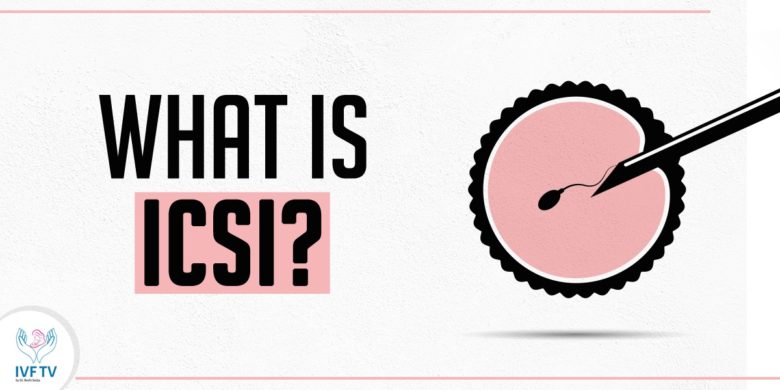What is ICSI (Intracytoplasmic Sperm Injection)?
The process of fertilisation involves the fusion of the sperm and the egg. Before fusion of the two, head of the sperm goes and attaches itself to the outside of the egg, and then sperm pushes its way into the egg. In some cases, the covering of the head is thick or challenging; or the motility of the sperm is less; in such cases, ICSI is done.
The egg and sperm can be fused in 2 ways –
1. Conventional IVF
2. ICSI
In the conventional IVF which is In-vitro Fertilisation, we place the eggs which are taken out of the body in a dish and add 50,000 or more swimming sperms also in the same dish. The fastest-moving sperm goes and fuses with the egg by itself. The process of fertilisation takes place in the dish, then the growth of the embryo is checked.
ICSI is Intracytoplasmic sperm Injection. Here we hold the egg with the holder and take sperm in the pipette and inject the sperm directly into the egg. The fertilisation is done with the help of the injection pipette.
In Conventional IVF and ICSI once the process of fertilisation is done the growth of the embryo is checked from day 1 to day 5 the embryos can be transferred in the same cycle or frozen after discussion with the patient.

ICSI is done when–
-the male partner has very few sperms to the conventional IVF or IUI
-the moving ability of the sperm is defective
-the sperm has difficulty in attaching to the egg
-there is a blockage in the male reproductive tract owing to which sperms are unable to ejaculate
-Frozen eggs are used
In 50% to 80% of cases, we are able to fertilise the eggs with ICSI. There is a problem which we might encounter during or after ICSI-
-the eggs may get damaged
-the egg may not grow into an embryo
-the embryo stops growing
Conventional IVF & ICSI both have the same chances of success of giving birth to a single or twins or triplets once the fertilisation has occurred.
The chances of birth defects in natural conception are 1.5 to 3 %. In the case of IVF or ICSI, the chances of birth defects are a little more as compared to natural conception. The increased incidence of birth defects is owing to infertility and not due to the infertility treatment provided.
The birth defects occurring with ICSI are Beckwith Weidemann Syndrome, Angelman Syndrome, hypospadias, sex chromosome abnormalities. These abnormalities occur in less than 1% of patients treated with ICSI.
For more information contact- Dr Roshi Satija – 9958722133, www.drroshisatija.com

